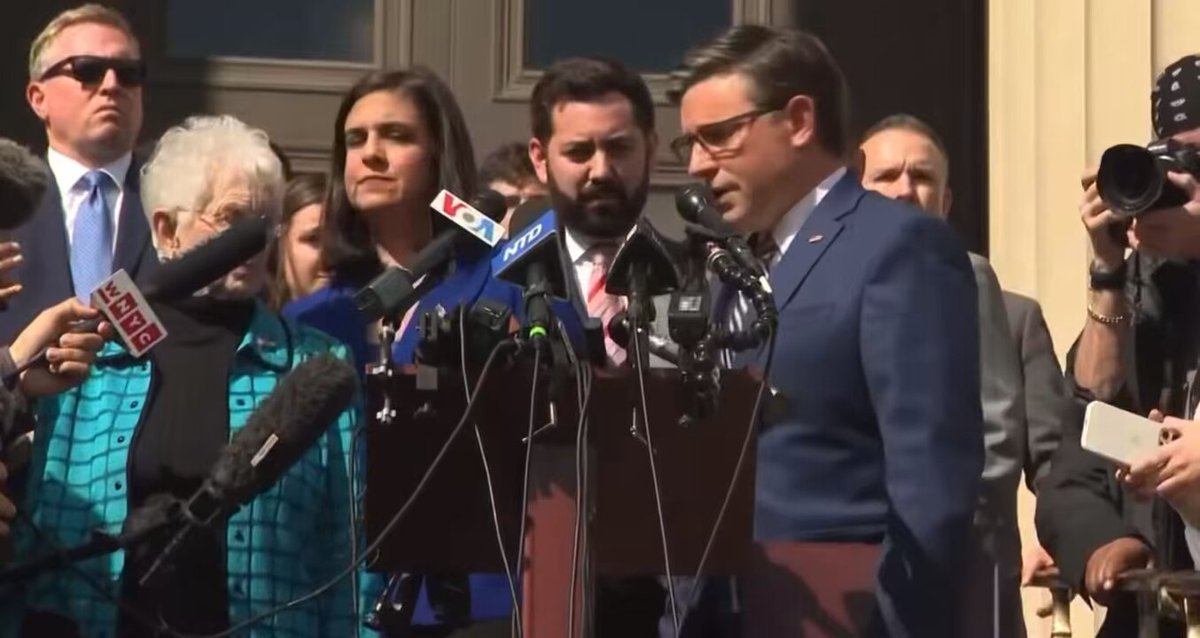Reposted by Speaker Mike Johnson
The statement is a public declaration made by a group of political figures during a public event, addressing their stance against what they label as 'terrorist sympathizers'. The tone is assertive and combative, indicating a strong position against perceived adversaries.
- The statement may indirectly cause harm by labeling opponents as 'terrorist sympathizers', which could incite hostility. [-1]Principle 1:I will strive to do no harm with my words and actions.
- The statement does not show respect for the dignity of others, as it uses harsh language that could dehumanize or vilify those with opposing views. [-1]Principle 2:I will respect the privacy and dignity of others and will not engage in cyberbullying, harassment, or hate speech.
- The statement lacks a tone of empathy and compassion, focusing instead on confrontation. [-1]Principle 3:I will use my words and actions to promote understanding, empathy, and compassion.
- The statement does not promote constructive dialogue or understanding, as it positions the speaker in direct opposition to the other party without indicating openness to discussion. [-1]Principle 4:I will engage in constructive criticism and dialogue with those in disagreement and will not engage in personal attacks or ad hominem arguments.
- The use of strong, divisive language may not necessarily contribute positively to societal betterment, as it could deepen divisions. [-1]Principle 6:I will use my influence for the betterment of society.
- The statement uses a public platform to express a firm stance, which aligns with using influence publicly; however, the divisive language might not reflect responsible or integrity-filled use of such a platform.Principle 7:I will uphold the principles of free speech and use my platform responsibly and with integrity.
